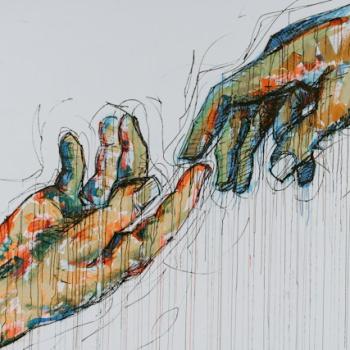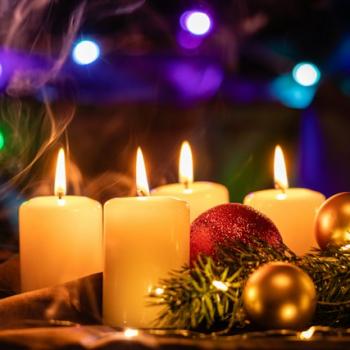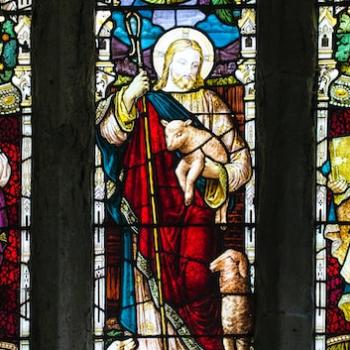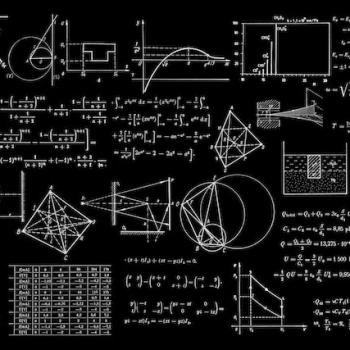
The trailer for an upcoming horror movie, right? Nope. Just a couple lines from this Sunday’s gospel reading (Mark 13: 24-25).
So that’s Jesus being all gloom-and-doom, all end-of-times? That’s our sweat heal-the-sick, play-with-the-children Jesus talking about a future cataclysm that will turn life as we know it upside down? Yes, it is. You’d be forgiven though if you were a bit confused.
Multiple Personalities?
The guy who talks about the heavens shaking and the death of the sun and moon and stars here is the same guy who also says, “Look at the birds in the sky; they do not sow or reap, they gather nothing into barns, yet your heavenly Father feeds them. Are not you more important than they? Can any of you by worrying add a single moment to your life-span?” (Matthew 6: 26-27) So which is it? Is it time to freak out about the future? Or is worrying a fool’s errand? Reading the gospels can make a sane person wonder if Jesus might have had some sacred form of dissociative identity disorder.
This week I was asked to talk about Advent, the season in the liturgical year that begins in two weeks, to a group of RCIA candidates looking into the Catholic faith with the intention of being baptized. I told them that Catholic Christianity is a “both/and” religion. It’s about both the historical events that occurred over 2,000 years ago . . . and this present moment today. It’s about both life . . . and death . . . and the fact that they aren’t always distinct from one other. It’s about a God who is both imminent . . . and transcendent, a faith that’s both individual . . . and communal, an experience of life that’s both secular . . . and sacred.
Advent-ure Awaits
Advent is my favorite time of the church year because of its both/and architecture. It’s the season in which we anticipate the birth of Jesus as well as our union with Christ after death . . . but it’s also a time when we recognize that God is already present. It’s a time of longing for what we lack . . . and a time of recognizing what we already have. It’s both/and.
Zen Buddhists make use of “koans,” which are paradoxical statements, questions, or stories. A famous one is, “What’s the sound of one hand clapping?” It’s an absurd question because it can’t be solved. But of course, that’s the point – to lead the practitioner to a gut-level experience of the kind of authentic truth that lies beyond the limits of human intellect. In a way, we could say that the vast array of both/and truths in the Christian faith are koans that point us to a God who cannot be captured within the bound of rational thought.
Today at Mass, the deacon who preached reminded us that the word, “apocalypse,” in its original Greek form means “to uncover” or “to reveal.” Humans have longing built into their DNA. Christians and other persons of faith long for God. Even those who are not even a tiny bit religious long for meaning and purpose. We are all always hoping, always waiting. But the beauty of the incarnation means that while we wait, we also know that what we seek has already arrived. It’s not a matter of getting something new; it’s a matter of recognizing what has been present all along. It’s both/and.
Photo by Michael Mouritz on Unsplash














